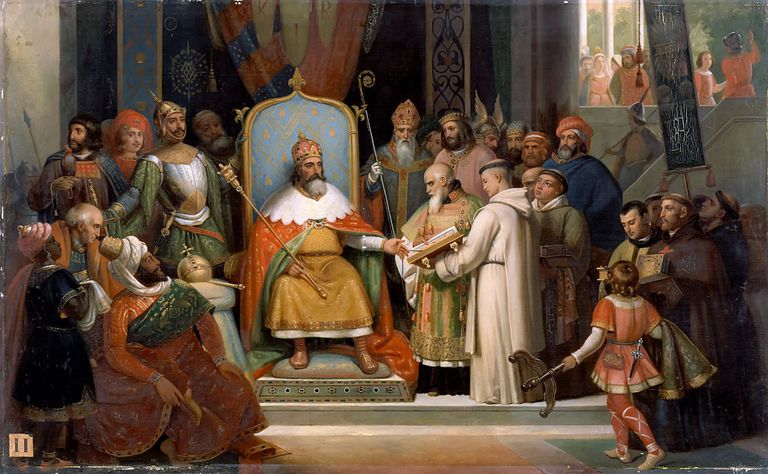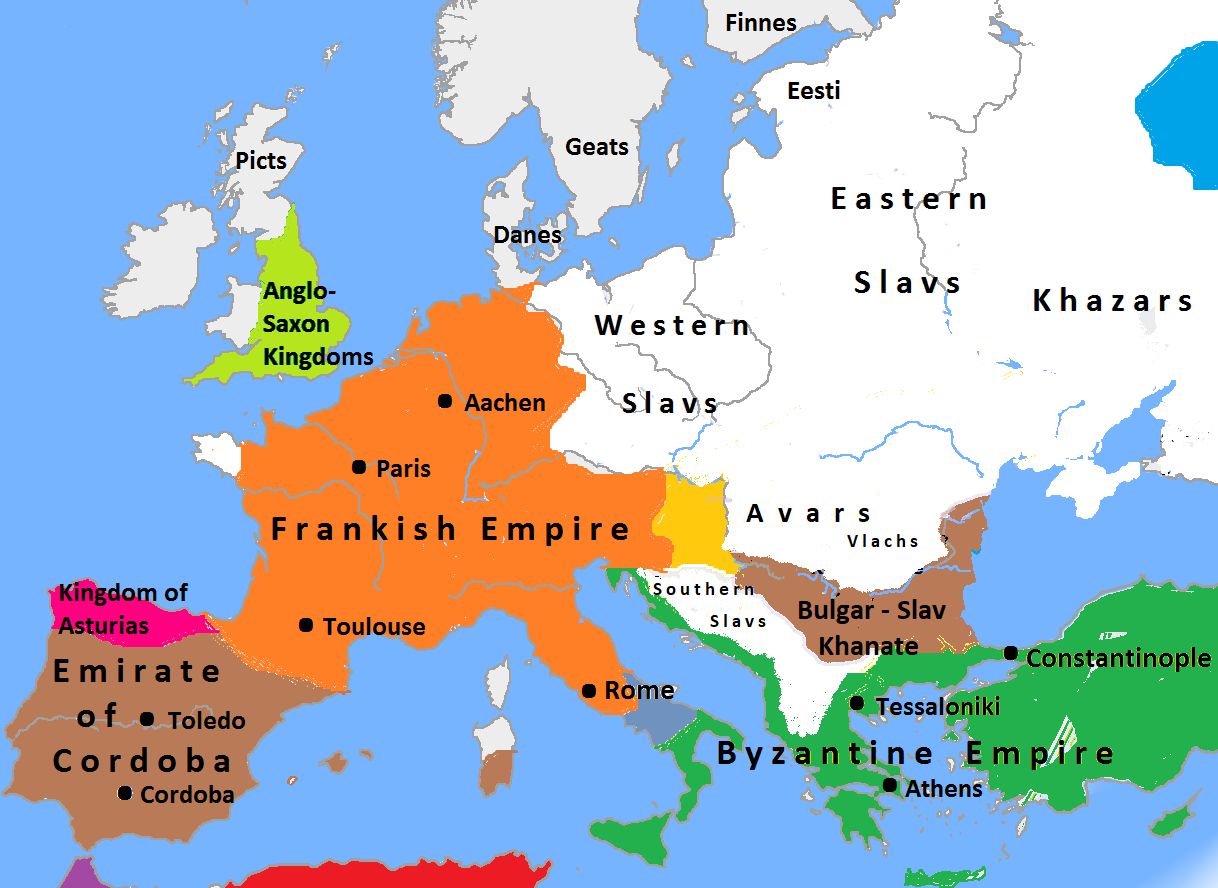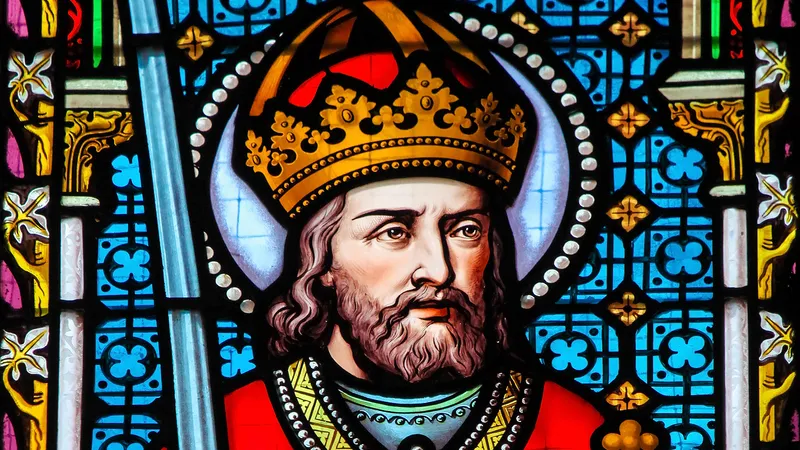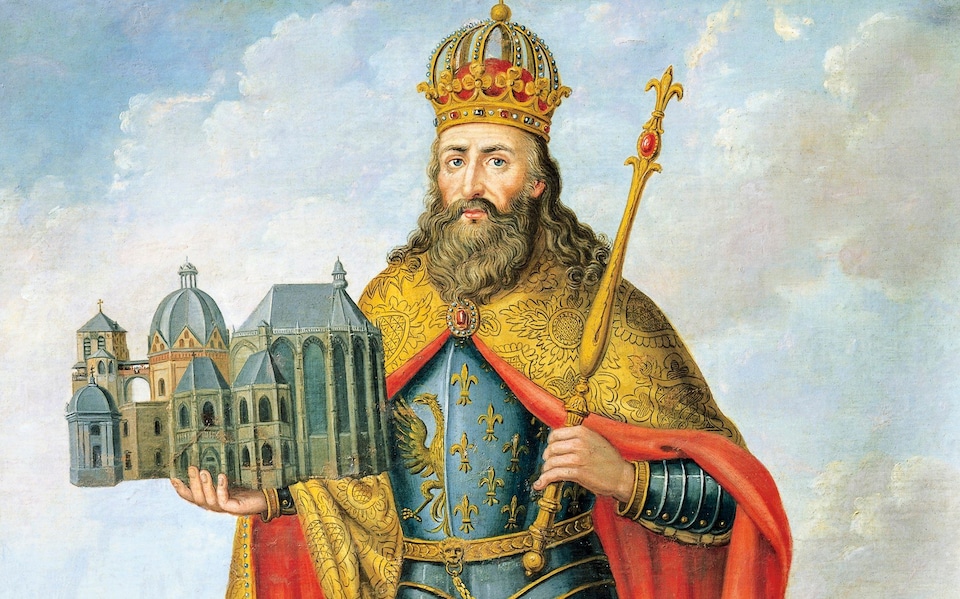By Dimitris Topalis,
When Charlemagne became emperor, the world was undergoing significant changes that had an impact on his kingdom. He was a warrior king, according to Frankish legend, and he was expected to lead his subjects in battles that would strengthen the Frankish Empire and bring benefits to his allies. His Merovingian predecessors had succeeded remarkably well as conquerors, but their victories resulted in a kingdom made up of diversities of people over which unified rule grew increasingly difficult. Because he needed to rule over people that had different desires, traditions, and faith and that was complicating the situation for the Merovingian kings were both the desires of the Frankish elite for wealth and power and the constant partitioning of the Frankish realm that resulted from the custom of treating the kingdom as a patrimony to be divided among all the male heirs surviving each king.
By the early 8th century, these forces had reduced the Merovingian rulers to what their Carolingian successors were bad kings, who essentially did nothing. An aristocratic dynasty, later known as the Carolingians after Charlemagne, had seized real power during the 7th century. It did this by using the position of mayor of the palace to establish control over the royal administration and resources and by cultivating a strong enough support base to repel rival Frankish families vying for comparable power.

The start of the Charlemagne Reign
During the 8th century, the Carolingian mayors of the palace Charles Martel (714-741) and (prior to becoming king) Pippin III (741-751) increasingly turned their attention to activities aimed at checking the political fragmentation of the Frankish kingdom. Thus, Charlemagne was descended from a long line of kings, who were judged by their prowess in battle, which forced him to develop methods of rule that could maintain control over an expanding multilingual populace. The conventional role of the Frankish kingship was being complicated by new forces at work in the middle of the eighth century.
The Carolingians were at that time one of the rulers “by the grace of God”, a function that imposed on the new, not yet clearly defined rights and obligations. Pippin had usurped the royal office and relied on the authority to make his claim to the Merovingian Dynasty legitimate. The assumption of that new burden came at a time when religious renewal was gathering momentum to add a new dimension to the forces defining, directing, and sustaining the Christians.

The 8th century witnessed very intellectual and artistic stirrings throughout Latin Christendom, which focused on re-establishing contact with the Classical and patristic past as a crucial requirement for the renewal of Christian society. Social bonds formed when one person commends himself to another are superimposed over the Frankish social system, which had previously been based on kinship ties, ties connecting war leaders and their comrades in arms, and ties based on ethnicity.
These social bonds entailed the provision of services to the superior in exchange for material benefits granted to the dependent party. Moreover, the world beyond Francia was being reshaped politically and economically by the decline of the Eastern Roman Empire, the triumphal advance of Arab forces and their Islamic religion across the Mediterranean world, and the threat posed by the new Scandinavian, Slavic, and Central Asian invaders.

The significance of Charlemagne’s Reign
The distinctive feature of Charlemagne’s reign was his attempt to uphold the traditional Frankish monarchy traditions and aspirations while creatively addressing the new forces affecting society. His character traits helped him in taking on the challenge. The ultimate warrior leader, Charlemagne, was a physically dominating figure endowed with enormous energy, inner bravery, and an unbreakable will. He cherished an active lifestyle that included military campaigns, hunting, and swimming, but he was as at home in a court setting. He was kind with his presents, a good buddy to have at the dinner table and skilled at making new acquaintances.
His big family, which included five marriages in succession, a number of concubines, and at least 18 kids whose interests he closely monitored, was never far from his thoughts. Charlemagne had a high level of innate intelligence, intellectual curiosity, a willingness to learn from others, and religious sensibility, all of which enabled him to understand the forces that were transforming the world around him despite having just a basic level of formal education. These characteristics of his character came together to make him a personality deserving of admiration, loyalty, and affection. Charlemagne was a leader capable of making informed decisions, willing to act on those decisions, and skilled at persuading others to follow him.
References




